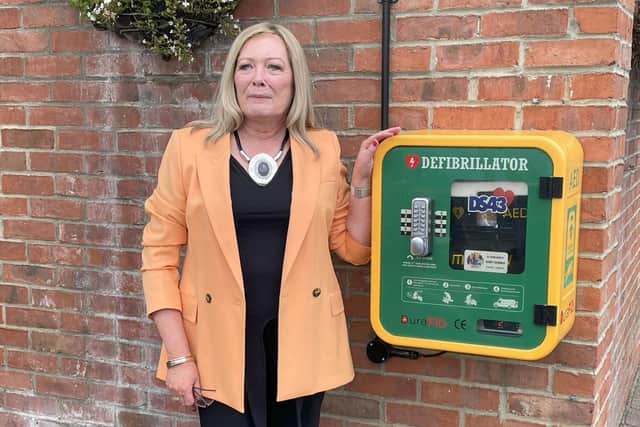Hartlepool mum who lost son, 43, to cardiac arrest co-authors British Heart Foundation study into UK defibrillator access
and live on Freeview channel 276
Pam Shurmer is the patient and public involvement co-author of a British Heart Foundation study which found people living in the most deprived areas of England are on average 99 metres further away from their nearest 24/7 defibrillator.
She and her husband Bill lost their son, Danny Shurmer, who was just 43 years old, to a cardiac arrest he suffered at home in 2021.
Advertisement
Hide AdAdvertisement
Hide AdThey helped to set up the group DS43 Community Defibrillators which provides and maintains more of the machines in public places across Hartlepool.


Their mission is to make it so nobody is ever more than 500 metres away from a community access defibrillator.
Pam said: “I would never want any parent to go through the loss that we went through when Danny passed away.
“He had no previous health issues and was a talented sportsman, so a cardiac arrest can happen to anyone.
Advertisement
Hide AdAdvertisement
Hide Ad“The charity is doing all it can to improve access to defibrillators across Hartlepool and we want anyone who has a cardiac arrest to have the best chance of survival.


“I proudly support this research that highlights just how far the nearest defibrillator is and how unequal the access is. Hopefully this leads to better access to these lifesaving devices.”
The British Heart Foundation calculated the median road distance to a defibrillator with unrestricted public access in 1.7 million postcodes across England, Scotland and Wales.
On average, a public access defibrillator is 726 metres away from the centre of any given postcode along the road network across England, Scotland and Wales.
Advertisement
Hide AdAdvertisement
Hide AdThe study, published in the journal Heart, was presented at the European Society of Cardiology Congress in Amsterdam on Monday.
Dr Chris Wilkinson, who led the research, said: “By calculating how far every postcode in Great Britain is from its nearest defibrillator, we’ve shown just how much deprivation levels affect the public’s access to these lifesaving devices out-of-hours in England and Scotland.”
Every minute of delay between a cardiac arrest and defibrillation reduces the chance of survival by up to 10%, the British Heart Foundation said.